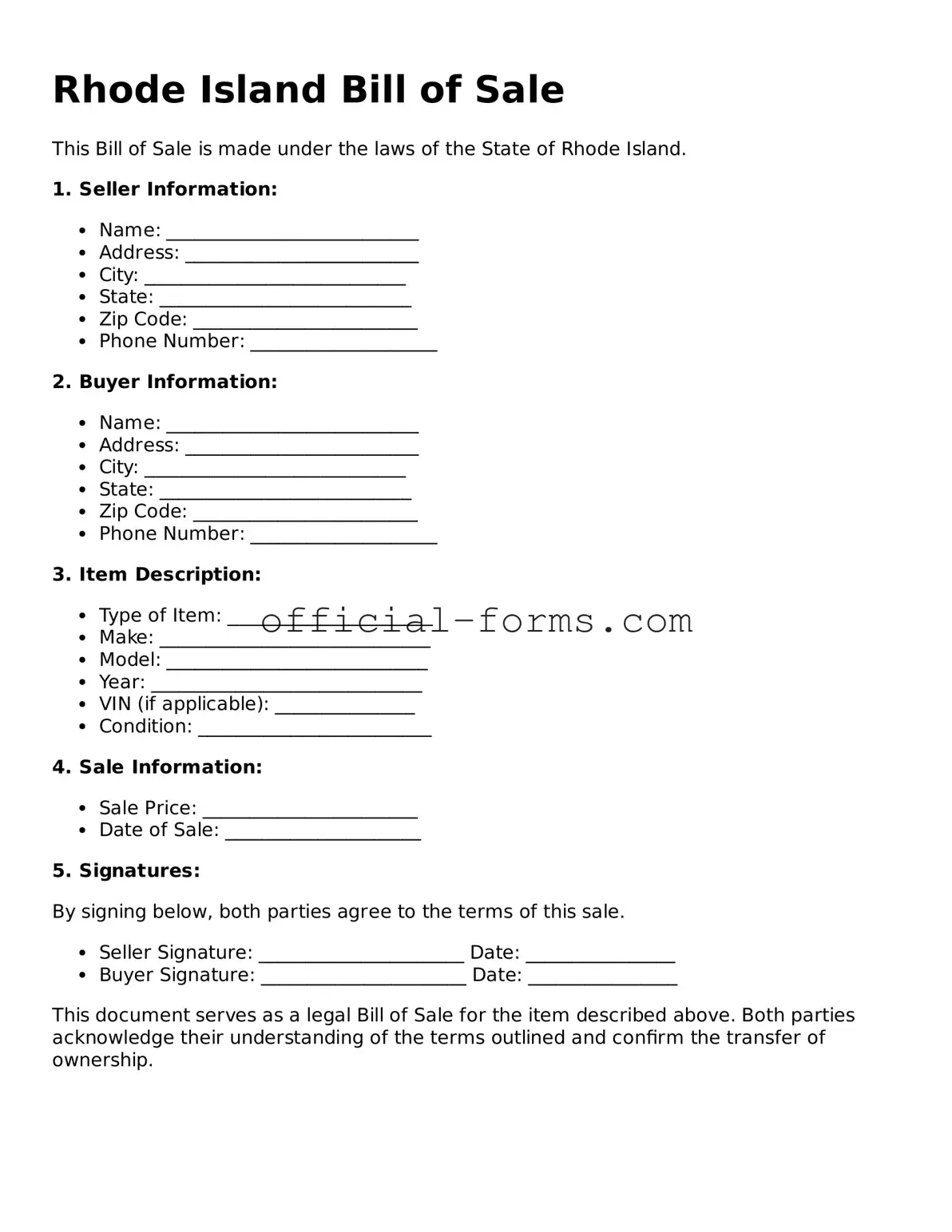Official Rhode Island Bill of Sale Document
A Rhode Island Bill of Sale form is a legal document that serves as proof of the transfer of ownership of personal property from one party to another. This form is essential for documenting the sale of items such as vehicles, boats, or other valuable goods, ensuring that both the buyer and seller have a clear record of the transaction. By using this form, individuals can protect their rights and clarify the terms of the sale.
Open My Bill of Sale Now

Official Rhode Island Bill of Sale Document
Open My Bill of Sale Now
Don’t leave your form incomplete
Finish Bill of Sale online quickly from start to download.
Open My Bill of Sale Now
or
➤ PDF
